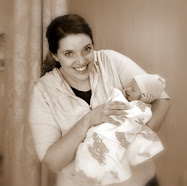Fewer pregnant women and their partners are attending prenatal education classes these days and appear to be quietly following whatever advice the doctor or midwife recommends, researchers said Monday.
Doctors, led by Dr. Michael Klein of the Child & Family Research Institute and University of British Columbia, surveyed 1,318 healthy pregnant women. They found many seemingly unprepared to make their own decisions regarding childbirth options, such as whether to have natural childbirth or a Cesarean section.
"[E]ven late in pregnancy, many women reported uncertainty about benefits and risks of common procedures used in childbirth," Klein said in a news release. "This is worrisome because a lack of knowledge affects their ability to engage in informed discussions with their caregivers."
The study was published in the June issue of Journal ofObstetrics and Gynaecology Canada.
The type of provider mattered greatly in terms of what kind of care women received. The researchers published a related study in May in the journal Birth that showed younger obstetricians were much more likely to favor the routine use of epidurals and expressed more concerns about the safety of vaginal birth compared with older obstetricians. The younger obstetricians seemed to view C-sections as the preferred option for childbirth, the authors noted. In the United States, efforts have begun to reduce C-section rates. About one-third of all U.S. women have a surgical birth.
Return to Booster Shots blog.
Doctors, led by Dr. Michael Klein of the Child & Family Research Institute and University of British Columbia, surveyed 1,318 healthy pregnant women. They found many seemingly unprepared to make their own decisions regarding childbirth options, such as whether to have natural childbirth or a Cesarean section.
Fewer than 30% of the women, all first-time mothers, said they had attended prenatal childbirth classes. Many said they used the Internet or books to become informed about childbirth. Still, a shockingly high number could not answer basic questions regarding the pros, cons or safety issues associated with epidurals, episiotomies, Cesareans and other childbirth options. The women who were receiving obstetrical care from midwives tended to be more informed about their options compared with women receiving care from a medical doctor.
"[E]ven late in pregnancy, many women reported uncertainty about benefits and risks of common procedures used in childbirth," Klein said in a news release. "This is worrisome because a lack of knowledge affects their ability to engage in informed discussions with their caregivers."
The study was published in the June issue of Journal ofObstetrics and Gynaecology Canada.
The type of provider mattered greatly in terms of what kind of care women received. The researchers published a related study in May in the journal Birth that showed younger obstetricians were much more likely to favor the routine use of epidurals and expressed more concerns about the safety of vaginal birth compared with older obstetricians. The younger obstetricians seemed to view C-sections as the preferred option for childbirth, the authors noted. In the United States, efforts have begun to reduce C-section rates. About one-third of all U.S. women have a surgical birth.
Return to Booster Shots blog.
http://www.baltimoresun.com/health/boostershots/la-heb-childbirth-20110614,0,5102722.story



No comments:
Post a Comment